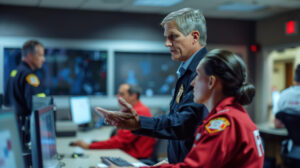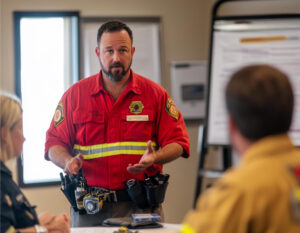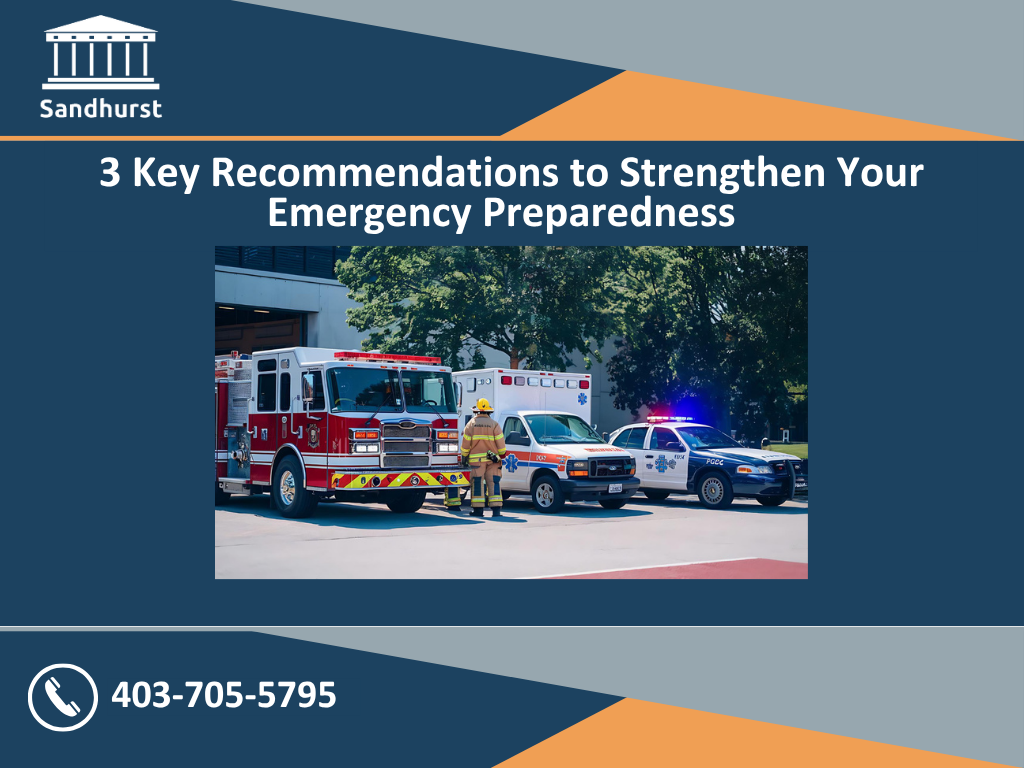This year alone, we’ve facilitated 55 emergency exercises, and we’re not done yet. Our clients span the spectrum: from small businesses to multinational corporations, remote communities to provincial and federal agencies, and across both public and private sectors. Despite this diversity, we consistently uncover these 3 shared challenges amongst our clients and opportunities for growth. Here’s what we recommend:
1. Strengthen Unified Command through real-world collaboration
Key Insight:
Many teams lack hands-on experience with Unified Command (UC), which can hinder coordination during a real emergency.
Our Recommendation:
Proactively involve stakeholders who may be part of a unified response, such as police, fire, or municipal/provincial partners in your exercises. This builds trust, clarifies roles, and refines protocols in a low-pressure environment. It’s a chance to demystify each other’s operations and align expectations before a crisis hits.
To set your team up for success, we recommend ICS 300-level training for anyone expected to operate within UC.
2. Ensure your space works
Key Insight:
Your physical space can either support or sabotage your response efforts.
Our Recommendation:
Whether you’re working from a modest boardroom or a fully equipped Emergency Operations Centre (EOC), your layout should enhance communication and situational awareness.

– Group ICS sections functionally to maintain clear sightlines to command
-Ensure tools for tracking and sharing information are readily available, whether digital or hard copy.
Too often, we see underutilized screens, unopened plans, and tech that frustrates rather than facilitates.
A tailored exercise can help you identify and resolve these issues before they impact a real response.
3. Empower your people to lead with confidence
Key Insight:
Many responders step into unfamiliar roles during an incident and while they often rise to the occasion, it’s not without stress.
Our Recommendation:
Equip your team with the clarity and confidence they need by ensuring:
– They know their role
– Who they report to
– Where to find critical information
– What they’re accountable for
We’ve seen some newcomers thrive in high-pressure roles but preparation makes sure that everyone is confident in their responsibilities when the time comes to act. The right training exercise prevents disengagement, builds capability and sharpens skills.
Are you sure your team is well equipped to tackle a complex exercise? Consider starting with a simpler format or providing ICS training to build confidence and capability before scaling up.

Where to start? Whether it’s a simple tabletop or a complex multi-day full-scale exercise, we are experts at tailoring every exercise to meet your team’s unique objectives. We’ll help you choose the right format, provide ICS training if needed, and deliver a meaningful learning experience, whether you’re working with five people or fifty, a seasoned crew or a team of first timers.
Here’s why Emergency Response Leaders choose Sandhurst:
“Great instructor. Excellent facilitation. Information was outstanding as it came from real life experience.”
ICS 300 – Cenovus Participant
“Really good two days – excellent blend of receiving information and then applying it. Excellent course!”
ICS 200 – Sq’ewá:lxw First Nation Participant
“I’m a new supervisor and this content is highly relevant to this role and closing gaps in my knowledge and experience” – ICS 200, Parkland Fuels
Trust Sandhurst Consulting to prepare your team and close the gaps in your emergency response plans.




